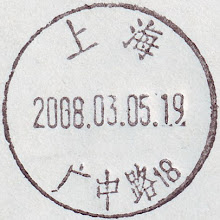
 Poland FDC
Poland FDC
Name: 100th Anniversary of the Birth of Paweł Jasienica
Date of Issue: 10 November 2009
10th November 2009 is the hundredth anniversary of the birth of Paweł Jasienica, one of the most widely-read Polish historical writers of the 20th century. The ease of translating his thoughts into words, the skill of expressing them and presenting historical facts and profiles of significant personalities of the ages under study, all rendered his books much sought-after. Among the most well-known works of Jasienica there is the essayistic historical synthesis of pre-partition Poland entitled "Polska Piastów" (1960), "Polska Jagiellonów" (1963) and "Rzeczpospolita Obojga Narodów" (1967-1972) which was reissued on numerous occasions. Following its first edition Jasienica came under criticism for promoting what was called a personalised approach to history (the belief that individuals have the power to influence history) which stood in contradiction with the Marxist philosophy of history of those days. The then authorities never stopped looking for a reason to prohibit the publishing of Jasienica's books in hope that he would be erased not only from people's memory, but also history. The readers, however, didn't fail him.
There are very few things in life as contagious as freedom
Paweł Jasienica was an advocate of freedom both in its literal sense and its figurative meaning, and he fought for it both with his pen and his sword. He was born to a family of long patriotic traditions - his grandfather took part in the January Uprising, and his great grandfather was a soldier in the November Uprising. The writer was born in Symbirsk at the Volga river and his real name was Leon Lech Beynar (he adopted a different name following the war in order to protect his wife from the NKVD as she, as a widow, remained in Vilnius which was then occupied by the Russians). He stayed in Russia until 1920. Between 1928 and 1932 he studied history at the Stefan Batory University in Vilnius and later worked as a teacher in Hrodna where he published a number of historical essays. Following the outbreak of World War 2 in 1939 he fought in the September campaign and actively conspired against the occupants as a member of the AK . When his squad was broken up in August 1944 he was taken captive and transported to Białystok where he endured interrogation and imprisonment by the NKVD. He was then drafted to a unit of the People's Army of Poland, but managed to escape and reach the 5th AK brigade in Vilnius. In July 1945 he was appointed the adjutant of the brigade commander Zugmunt Szyndzielarz a.k.a. "Łupaszka." Wounded on the night between 8 and 9 July, he left his brigade avoiding arrest and execution and took refuge in the parish house in the village of Jasienica.
Only slaves remain passive, but he who has tasted freedom wants ever more of it
In 1946 following the war he started working in Kraków as editor for "Tygodnik Powszechny" using an adopted name Paweł Jasienica. Having been arrested by the secret police (UB - Urząd Bezpieczeństwa) in 1948 and subsequently released, he joined the PAX association. Between the late 1959 and 1962 he presided over the Association of Polish Writers (Związek Literatów Polskich, ZLP) and between 1966 and 1970 he was Vice-Chairman of the Pen Club. In 1964 he signed the protest of 34 intellectuals campaigning against press censorship, and in March 1968 he supported the students' protest for which he was expelled from the ZLP. The pro-establishment press called him a mason and a man of unpleasant past. In 1968 Władysław Gomułka publicly suggested Jasienica was double-faced in an attempt to discredit the writer and provide a reason for prohibiting the publication of his books and articles. Jasienica felt the painful burden of those unfair accusations until the end of his life. He died in 1970 and was buried at the Powązki cemetery in Warsaw.
New stamp and First Day Cover
In order to commemorate the 100th anniversary of the birth of Paweł Jasienica Poczta Polska introduced a stamp featuring a black and white photograph of the writer on the background of books. The FDC presents a stack of books and one page of typescript with the author's handwritten corrections. The issue is accompanied with an occasional date stamp in the shape of an open book, in use in the Warsaw 1 Post Office.
Saturday, December 12, 2009
Poland Writer FDC
Posted by Fan Ming at 12/12/2009 07:46:00 PM
![]() Label:
Poland
Label:
Poland
Subscribe to:
Post Comments (Atom)






No comments:
Post a Comment